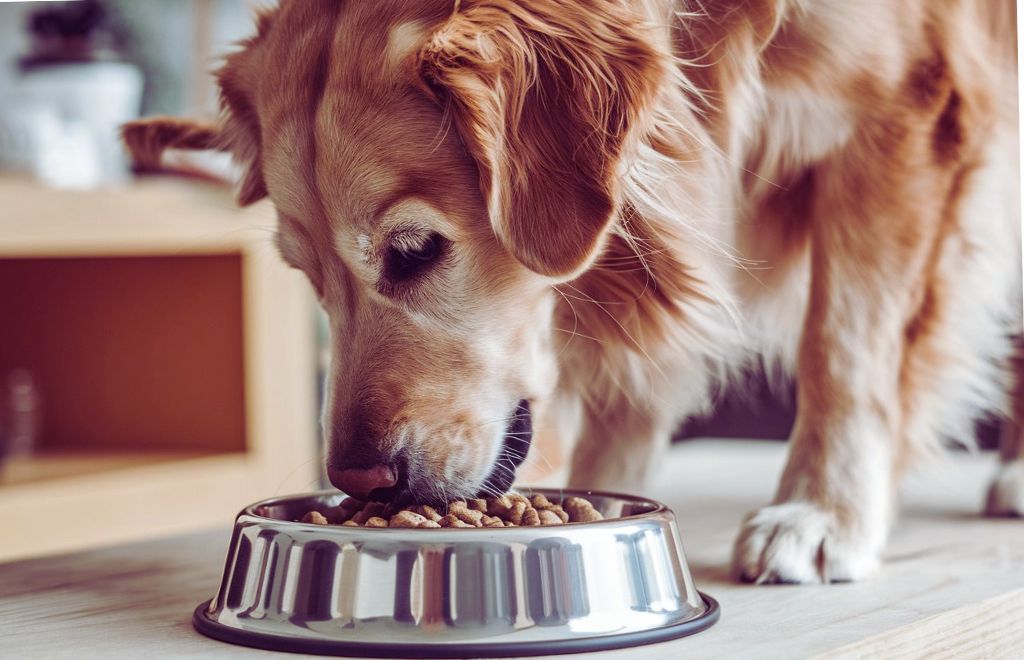Does your furry buddy scratch constantly as though tomorrow does not exist? Do they suffer with persistent digestive problems? You might have food allergies. Still, there are some delicious remedies here that will quickly help your four-legged friend feel better. We’re going to investigate the realm of hypoallergenic foods for dogs today that will let your dog bounce with happiness once more.
Our dogs can have food allergies, same as people can. From irritated skin to uneasy tummies, these allergies can bring about a range of issues. That’s where hypoallergenic foods for dogs find application. These unique foods are made to be mild for your dog’s system by including less prone to cause those bothersome allergy reactions ingredients. Many pet owners have witnessed their dogs go from itchy, unhappy pups to happy, healthy hounds by changing to these meals.
But just what exactly are hypoallergenic foods for dogs? Consider these as your pup’s new beginning for his diet. They sometimes have limited ingredients to lower the likelihood of an adverse reaction or fresh proteins (meats your dog has never eaten before). Some are created from easily digestible carbohydrates such as sweet potatoes rather than grains. Others could concentrate on single-source proteins to enable you to specifically identify what fits your dog’s tummy. The aim is to provide your animal friend all the nutrients they require free of elements that might be causing problems. Let us now explore seven powerful choices that can be revolutionary for your allergic dog!
Identifying Dog Food Allergies
Let’s discuss why some dogs require specific food before diving into the fun stuff. Dogs can have food allergies, same as people can. Their bodies could respond negatively to common foods. They may become itchy, have upset stomachs, or experience other issues as a result.
Signs Your Dog Might Need Hypoallergenic Foods
Watch out for these clues:
- Scratching that never ends
- Red, agitated skin
- recurrent ear infections that never go away
- Tummy problems including runny poop or throwing up
- Paws that are consistently red or painful
If you notice these symptoms, you could want to investigate hypoallergenic foods for dogs. Still, always first talk with your veterinarian.
Top 7 Supercharged hypoallergenic foods for dogs
Let’s now look at seven supercharged hypoallergenic foods for dogs that would make them feel amazing:
1. Sweet Potatoes: Nature’s Treat for Happy Pups
Among hypoallergenic foods for dogs, sweet potatoes rank highest. Good stuff like vitamins and fiber abound in them. Dogs also enjoy sweet flavor! For a crunchy snack, either mash them or bake thin slices.
Why they’re great:
- Simple to break down
- loaded in vitamins A, B6, and C.
- can assist with digestive problems.
Serving suggestion: Start with tiny amounts blended with your dog’s usual meal.
2. Salmon: Omega-3 Powerhouse for Shiny Coats
Usually a standout in hypoallergenic foods for dogs is fish. Salmon is very unique as it carries omega-3 lipids. These maintain your dog’s coat glossy and skin healthy. A great dinner for your pup’s tail wag is cooked salmon.
Benefits of salmon:
- Reduces inflammation
- Enhances brain function
- Helps a strong immune system.
Caution: Before serving, always well boil salmon and remove all the bones.
3. Quinoa: Super Seed for Super Pups
Not only are health-conscious people suited for quinoa! For many dogs suffering with allergies, this grain is harmless. This little seed is easy to break down and loaded in protein. If your dog finds other grains objectionable, this is a fantastic substitute.
Benefits of quinoa:
- Strong in proteins
- Includes all nine of the basic amino acids.
- Loaded in fiber for easy digestion
How one serves: Combine some cooked, cooled quinoa into your dog’s usual cuisine.
4. Pumpkin: Perfect Vegetable for Happy Bellies for Tummies
Does your dog’s gut often cause problems? Maybe pumpkin would be the solution! For dogs suffering with digestive problems, this is among the best hypoallergenic foods. Cooked pumpkin can help with constipation and diarrhea alike.
Power of pumpkin:
- Plenty of fiber
- High in vitamins A and C.
- Can assist in weight control.
Pro tip: Use plain canned pumpkin, not pumpkin pie filling.
5. Rabbit: Novel Protein Source for Sensitive Pups
Never gave feeding your dog rabbit much thought. For dogs with food allergies, this is actually a fantastic option. Rabbit is a new protein, so many dogs have never eaten it before. This less frequently results in an allergic reaction.
Why rabbit:
- Lean protein source
- Usually tolerated by allergic dogs rather nicely
- Possibly easier to break down than other meats
Serving recommendation: Search for commercial dog foods mostly composed of rabbit as the protein.
6. Coconut: Fruit for Comfy Dogs that fights itching
One covert weapon against dry skin is coconut. Coconut’s oils include qualities that combat germs and yeast. A small bit of coconut oil in your dog’s diet could aid from the inside out calm their skin.
Benefits of coconut:
- Can help with coat and skin health.
- Possibly strengthen immune system.
- Aids in the absorption of nutrients
Safety first: Start extremely modest to prevent stomach disturbance.
7. Green Beans: Crunchy Low-Cal Snack for Fit Fidos
Searching for a good treat? Experiment with green beans! Though they have little calories, they are heavy in fiber. Many dogs find great delight in crunch. They can also help dogs feel full and are mild for delicate tummies.
Green bean goodness:
- Low calorie value
- Heavy in vitamins C and K
- May assist with weight control.
Suggestion for serving: Training snacks could be fresh or frozen green beans.

Mixing It Up: Creating a Balanced Diet with Hypoallergenic Foods
Remember that feeding hypoallergenic foods for dogs depends mostly on diversity. Don’t eat one meal exclusively. Combining and matching will provide your dog all the nutrition they require. To prevent stomach problems, always gradually introduce novel foods.
Here is a dinner schedule:
- Breakfast : Dog food based on rabbits with a teaspoon of pumpkin
- Lunch : Little little of grilled fish accompanied with quinoa
- Dinner : Mash made from sweet potatoes combined with ordinary dog chow.
- Snacks: Coconut oil treats or green beans
Talk to Your Vet: The Key to Success
See your veterinarian before radically changing your dog’s diet. Dogs with specific needs can help you choose the best hypoallergenic foods. They might even propose specific dog diets created for allergies.
Your veterinarian can:
- Get tests to pinpoint certain allergies.
- Help design a customized eating schedule.
- Track the development of your dog and make necessary changes.
The Transition: Switching to Hypoallergenic Foods
Start introducing your dog to new hypoallergenic meals slowly. This is a decent approach to do it:
- Days 1-3: 75% old food, 25% new food
- Days 4-6: 50% old food, 50% new food
- Days 7-9: 25% old food, 75% new food
- Day 10 and beyond: 100% new food
Watch your dog very attentively over this period. See any negative reactions? Stop and discuss with your veterinarian.
Conclusion:
Feeding your allergic pup is not difficult. These seven supercharged hypoallergenic foods for dogs will help your beloved buddy to stay happy, healthy, and itch-free. Keep in mind to introduce novel foods gradually and look for favorable improvements. Your dog will show thanks with wagging tails, wet kisses, and unbounded vitality!
Each dog is different hence what works for one may not work for another. Work with your veterinarian patiently to discover the ideal combination of hypoallergenic foods for your particular dog. Love, care, and a proper nutrition will help your dog lead their best, most pleasant life.
FAQs:
What exactly are hypoallergenic foods for dogs?
These are meals less likely to set sensitive dogs off in an allergic reaction. Many times, they have restricted ingredients or fresh proteins.
Can I make homemade hypoallergenic dog food?
Yes, but watch carefully! Working with your veterinarian, make sure the meals are safe and balanced for your dog.
How long does it take to see results from hypoallergenic foods?
It varies, but many dogs exhibit improvement four to six weeks after changing their diets.
Are grain-free diets always better for dogs with allergies?
Not invariably! Not grains but meat causes certain dogs allergies. Before cutting grains, always ask your veterinarian.

